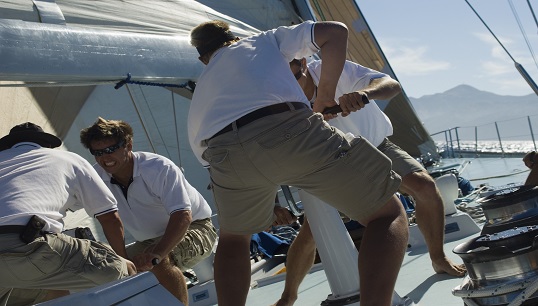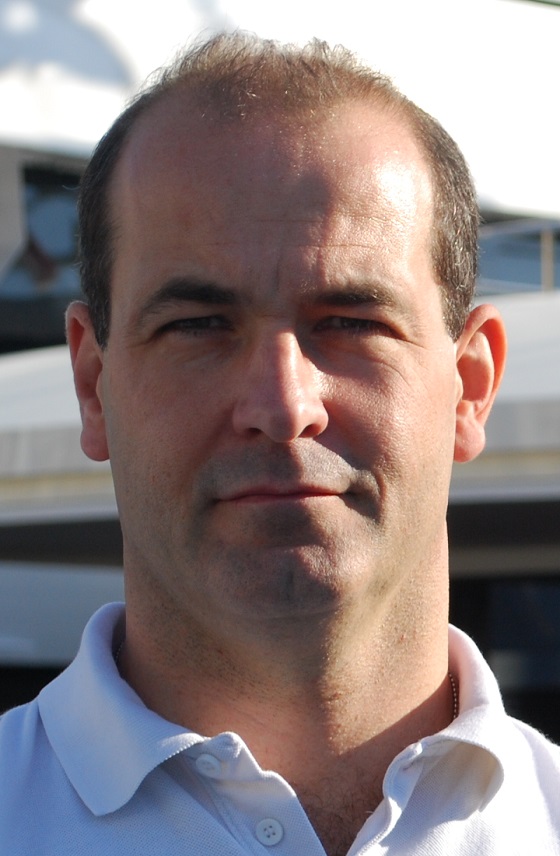- Topics
- Campaigning
- Careers
- Colleges
- Community
- Education and training
- Environment
- Equality
- Federation
- General secretary message
- Government
- Health and safety
- History
- Industrial
- International
- Law
- Members at work
- Nautilus news
- Nautilus partnerships
- Netherlands
- Open days
- Opinion
- Organising
- Podcasts from Nautilus
- Sponsored content
- Switzerland
- Technology
- Ukraine
- United Kingdom
- Welfare

In a professionalising sector, superyacht captains need to understand the value of training and mentoring – and pass that insight on to owners. Steve Monk explains why
Crew are the most vital component of any yacht. The vessel is nothing without them. They are a team made of individuals, each of whom brings something unique to create an experience guests won’t forget.
They must work together in a structured chain of command which is guided from the top by professionalism and experience. Mentoring is essential to produce the next generation – so leadership and training must be a top priority. But is it?
A demanding role

Let's be honest, we've all seen and heard of good and bad boats; those where crew don’t leave as there's a great atmosphere, working arrangement, programme and enjoyable guests; versus those where crew are almost on a revolving door, safety is compromised through lack of thought or care, and guests show no respect or courtesy.
New owners need to understand the importance of getting a good crew, how to find the right captain, how to promote welfare onboard and how to get the most out of the team without breaking them.
This doesn't mean to say crew should rest on their laurels. It's recognised that working aboard a superyacht is a well-paid job, and with that comes an expectation of hard work. However, there must be mutual respect.
Captains will find themselves in the middle of all this, ensuring the best is brought out of the crew to ensure guest satisfaction.
Captains are, in effect, managing a company which could have anything from eight to over 100 employees, while at the same time having to meet the demands of an owner who can make demands on them that range from perfectly respectable to wildly outlandish.
New requirements
Leadership and mentoring do not come naturally to all. You've no doubt seen good and bad examples and determined who you'd aspire to follow in the footsteps of. Good captains will recognise they can't do everything without assistance; they embrace the capabilities of others, seek guidance and training, and are able to accept external analysis of their characteristics, actions and capabilities. That is what sets them apart.
The superyacht industry has gone through a noticeable change during my 12 years in the business. Gone are the days of back-packing, flip-flop wearing, single season wannabees with no qualifications (with a few exceptions). There's now a formal training structure – and to some degree, a career path. Some want to race up it, but others mature at a more regulated pace gaining experience, falling over, getting up and figuring out what could be done better. They embrace challenges and learning opportunities and they want those around them to be the best they can. They accept they don't know everything, but they work to improve.
However, owners still need educating about this. Many will have gained great wealth by building companies with good professionally-trained employees they can work with and in whom they have trust and respect. They must therefore have this same respect for their captains and crew, but to an even higher degree. Why? Owners sometimes forget the crew aren't just there to cater to their every whim; they are there ensuring the safety of the vessel and those living in it. They are there to respond to an emergency in a calm, professional manner, and potentially to save a guest's life.
A matter of safety
To do this, crew need designers to stop incorporating unnecessary dangers into the vessel such as putting rescue tenders up forward where no captain feels safe to launch them in a 3m swell in the middle of the night. They need regulators to stop giving dispensations to regulations for the safety of those onboard. They need surveyors and auditors with no experience in training to stop dictating the outcome of exercises onboard. And – most importantly – the crew need time to train properly and realistically.
They need to know what they're doing isn't just in accordance with the regulations, but it works for that vessel through trial and error. Captains must lead but also listen to all members of the crew to hear of the latest techniques and equipment improvements.
Operating in an industry where most budgets give access to 'the best', careful management and use of external resources means captains should have full support from management to schedule in fixed immovable times to train the crew utilising specialists in those fields. Conducting this onboard gives the unique opportunity of using vessel-specific equipment, and allows crew to enhance and refine procedures.
Management should make it clear to owners this is being done ultimately for the safety of the guests. A dead owner doesn’t reflect well on a crew; owners should also see the benefit of training when it generates a well-honed, professionally led and suitably mentored team who do things properly.
Tags
